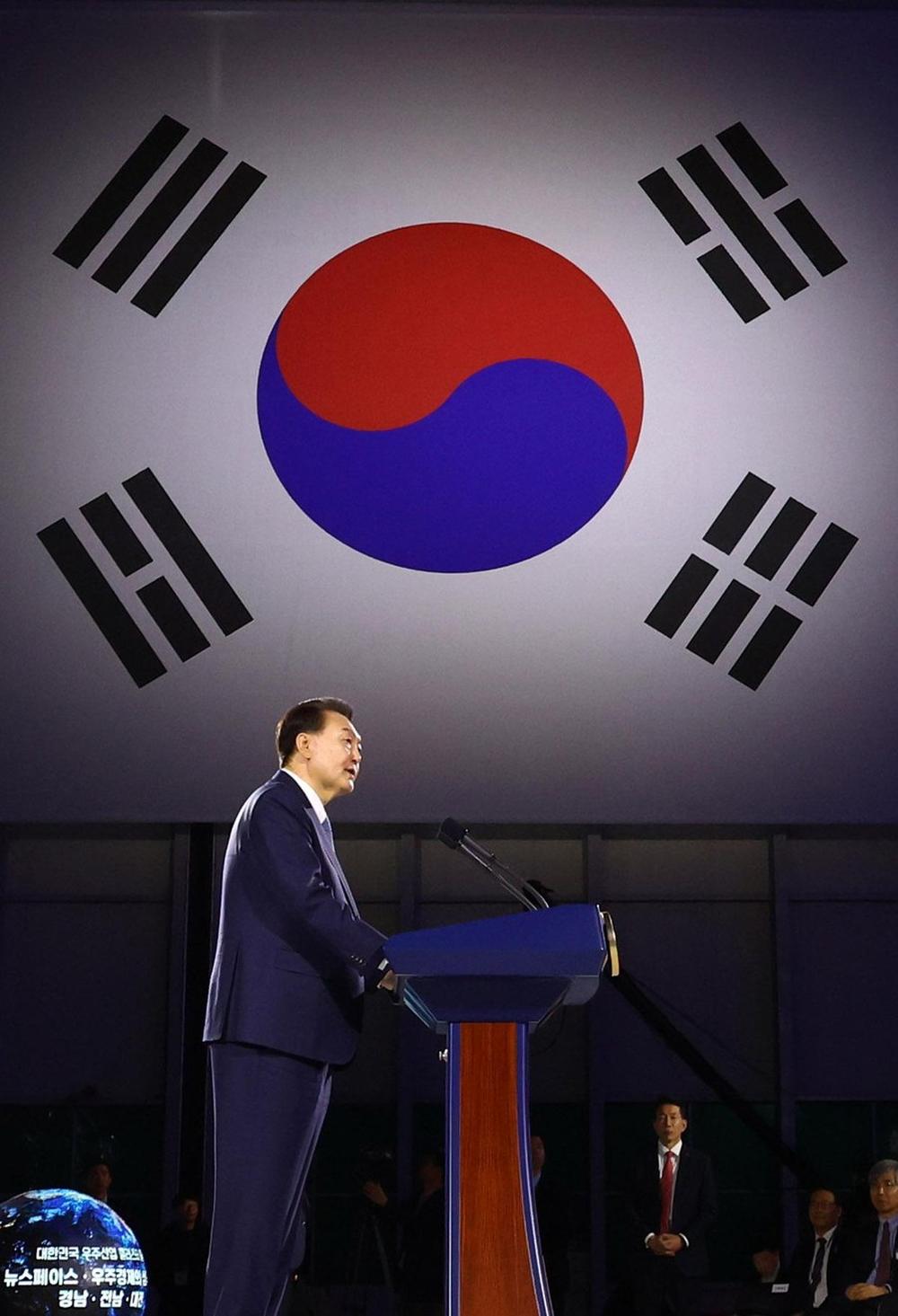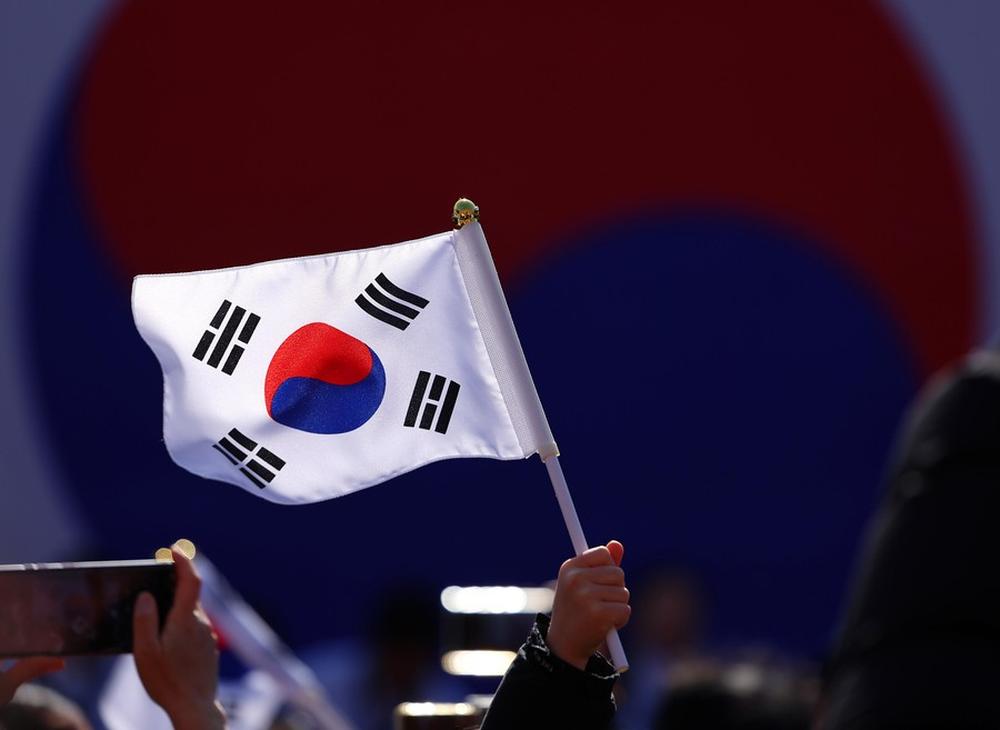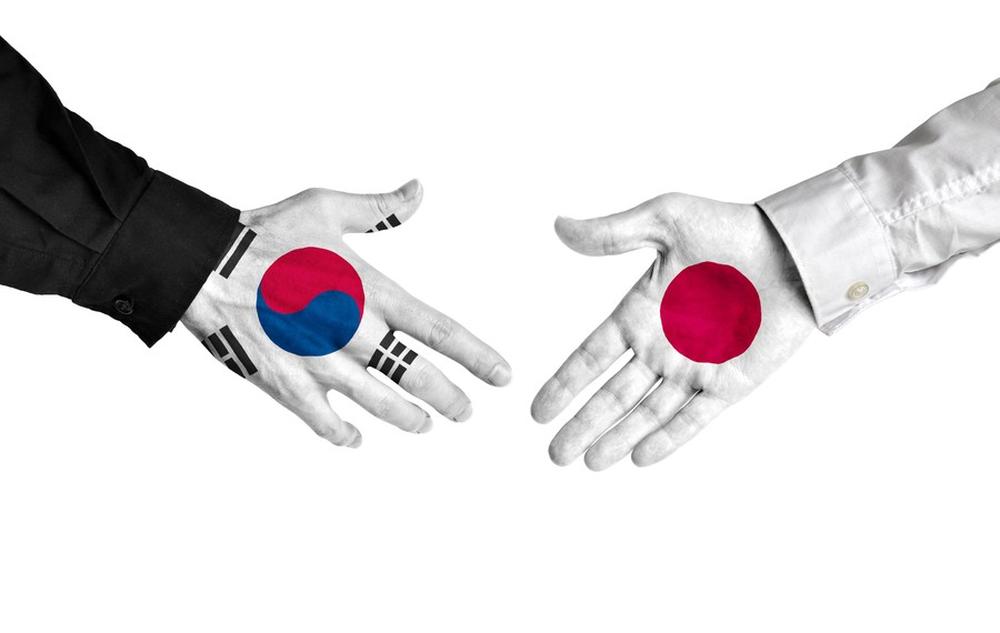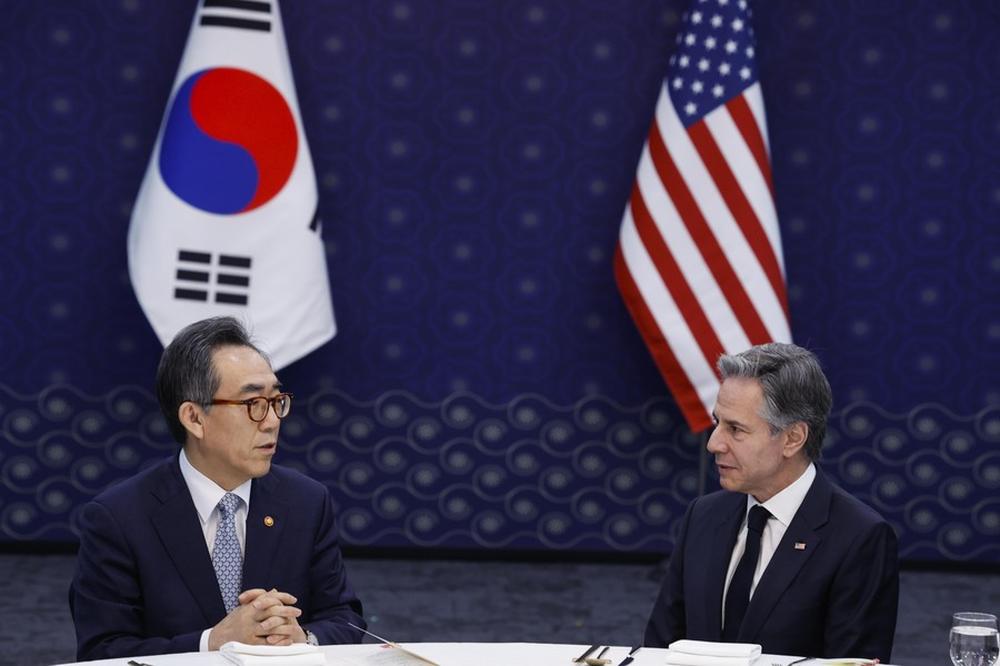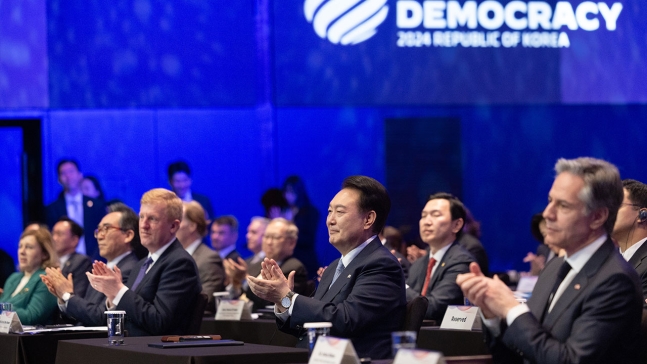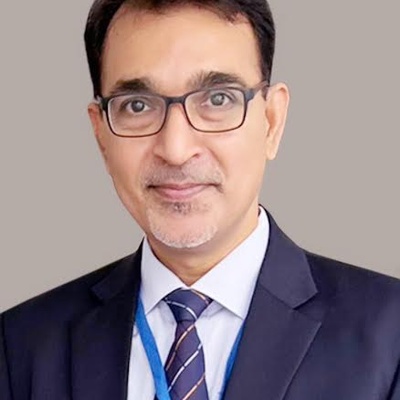
- #Global Issues
- #South Korea
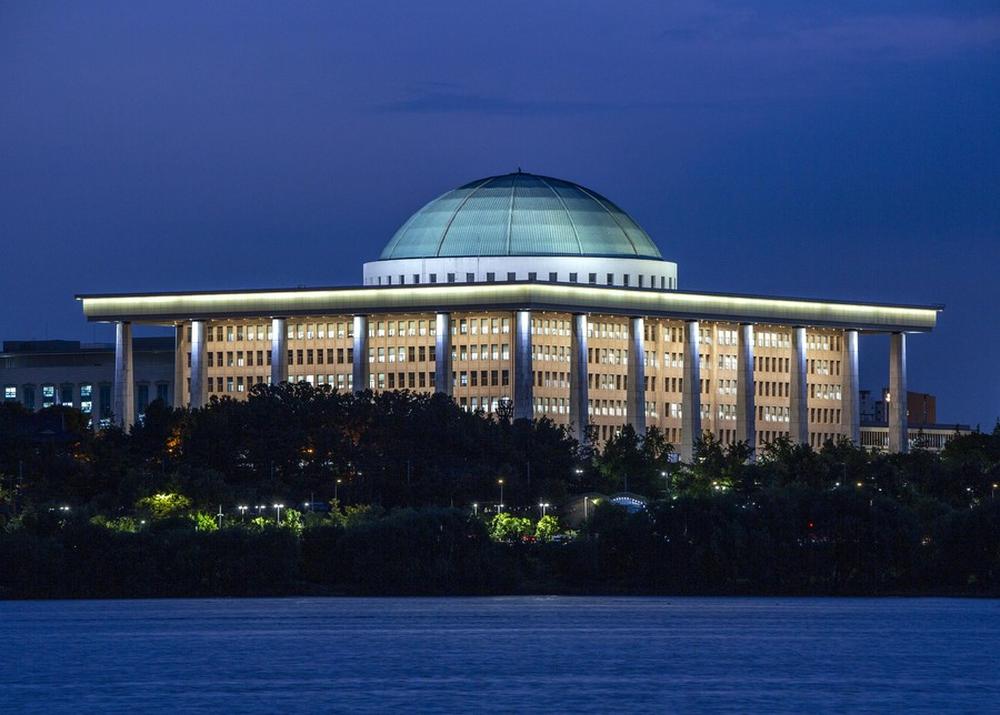
► It is remarkable that South Korea was chosen to be the first host of the Summit for Democracy outside the US, it is not encouraging that South Korea is being put into categories of ‘re-autocratization’ along with Myanmar and Indonesia by the V-Dem.
► In the last few decades when an oxymoron of ‘illiberal democracy’ has gained ground in other parts of the world, South Korea has strongly rejected the idea that ‘illiberal democracy’ could be another form of democracy. South Korea has also rejected the argument through its democratic success that ‘Asian values’ are not in consonance with the democratic values.
► At present, there are challenges to democracy in South Korea in the form of ideological polarization, rise of anti-feminism, and questions over governmental democratic performance.
It is interesting to see South Korea holding the third Summit for Democracy in March 2024 and a week before the Summit, a Sweden-based institute Varieties of Democracy (V-Dem) lowering South Korea’s Liberal Democracy Index and ranking it 47th among 179 countries. Whereas it is remarkable that South Korea was chosen to be the first host of the Summit for Democracy outside the US, it is not encouraging that South Korea is being put into categories of ‘re-autocratization’ along with Myanmar and Indonesia by the V-Dem. Such contradictory reports about the South Korea democratic performance are there and people cite one or the other depending on their intent to appreciate or not to appreciate current political context in South Korea.
Actually, South Korea’s democratic existence is a spectacular story but it is neither perfect today nor it will be perfect at any point in future. The strengthening of democracy in Korea has been incremental but it has never been linear. There have been challenges and backsliding but the process has been restored and re-energised from time to time. And by taking a longer scale of evaluation, it could be confidently said that South Korea is one of the most successful stories of democratic consolidation in the non-western world.
It is important to note that at least there are three-four layers of democratization and South Korea has shown remarkable success at most of these layers. First, democracy as a form of government is understood to be a polity in which certain institutions are being created such as a constitution, law, legislature, executive, judiciary, separation of power among the three organs of government, free and fair media and periodic elections and so on. South Korea has been successful in establishing all these structural parts of the democracy in the last more than three decades. Second, democracy also manifests itself at the layer of actually functioning and performance of these institutions. It means that a country must not only have democratic structures but their actual functioning also must be in adherence to the expectations from these structures. In South Korea, the performance of the democratic institutions has also been very impressive and it has been improving with the time. Third, democracy is also adherence to having prominence of democratic values in the political processes and these democratic values such as liberalism, individual rights, humanism, human rights and human dignity, absence of discriminations, affirmative action, welfare state, rule of law, accepting people’s verdict especially in the defeat and so on. In the last few decades when an oxymoron of ‘illiberal democracy’ has gained ground in other parts of the world, South Korea has strongly rejected the idea that ‘illiberal democracy’ could be another form of democracy. South Korea has also rejected the argument through its democratic success that ‘Asian values’ are not in consonance with the democratic values. South Korea is indeed a loadstar of the idea that there may be different socio-cultural milieu but democracy is indeed a ‘universal aspiration’. Fourth, democracy at another layer is also a way of life. A strong and sustainable foundation of democracy would not be possible if democracy is understood merely as a form of government. In South Korea through education, democratic participation and emergence of vibrant civil society which represents various interest groups across the spectrum have inculcated democratic values in individuals especially in the younger generation.
It is easy but not appropriate to get swayed away by the ranking of South Korea which has gone down at different points of its journey. These rankings are important and must be used to rectify the course of democratic journey but the bigger picture must be kept in mind. South Korea’s democratic backslide in recent years must be seen in the context of both domestic and global trends which are influencing the democratic quotient in various countries. In South Korea, ideological polarization, economic stagnation, and rise of less responsible social media have posed challenges for democracy. Externally, the rise of right-wing ‘strong’ leaders, growing challenges to the liberal order, weakening of institutions and international regimes, and diminishing commitments to the rule of laws are considered to be influencing domestic democratic functioning. Illiberal turn in leaders and politics of various countries are justified on the ground that since other countries have resorted to non-democratic behaviour, in articulating a response, democratic principles may be compromised.
However, South Korea is one of the few Asian countries who have been successfully trying to articulate its economic and cultural prowess to inspire the region towards democracy. Actually, it is being said that South Korea’s economic aid is helping several Asian countries in dealing with the problems of basic amenities such as safe drinking water, health care, food and nutrition and so on. South Korea is seen in other Asian countries as a ‘transformative’ power, who has been trying to help these countries to achieve their welfare goals. South Korea’s cultural products have also overwhelmed the younger generation across the globe. The youths in various countries are inspired by South Korea and they want to know more about South Korean economic and democratic success. In the future, it could also be expected that these youth would like that South Korean democratic success story could also be imitated in their own countries. Probably for the same reason, South Korea was offered to hold the Summit for Democracy in March 2024.
At present, there are challenges to democracy in South Korea in the form of ideological polarization, rise of anti-feminism, and questions over governmental democratic performance. However, they appear to be transitory. Out of four layers which are mentioned earlier, South Korea’s institutions are strong, the processes are transparent, and democratic values are largely adhered to at the political level. There are two domains of democratization in which South Korea must improve and they are- making democracy a way of life and functioning of some institutions. It is quite likely that South Korea would move further in democratic consolidation in the coming years and respond positively to these challenges.
At another level, the role and contribution of South Korea has been growing in the consolidation of democracy in other countries. South Korea has done it largely by being a model by herself, reaching out to these countries through aid donation programs, inspiring the youth of these countries through Korean cultural products and lately by creating a democratic alliance in the Indo-Pacific region and beyond. In articulating the Indo-Pacific strategy of South Korea, an aspiration to become a ‘global pivotal state’ has been underlined and it appears that South Korea wants to do it by consolidating liberal democratic solidarity in the region. South Korea seeks to work for a ‘free, peaceful and prosperous’ Indo-Pacific region which would be achieved only if rule of law and democratization in the region is pursued.
In brief, it is important to take a long-term view of the democratic journey of South Korea and appreciate its spectacular achievements, its constant upward trend though with few zigzag movements. Moreover, it is also expected that South Korea’s democratic prowess is going to be important in re-injecting democratization aspirations in several regional countries as well as creating a multipolar, institutionalised, and democratic Indo-Pacific in coming times.

Dr. Sandip Kumar Mishra is Professor at the Jawaharlal Nehru University, New Delhi, India. He is also Honorary Fellow at the Institute of Chinese Studies (ICS), Delhi and Distinguished Fellow at the Institute of Peace and Conflict Studies (IPCS), New Delhi. He is a Non-Resident Fellow at the Sejong Institute and a Collaborative Fellow at the Ajou Unification Research Institute, Ajou National University. He writes a monthly column named East Asia Compass at the IPCS website and another column to the Korea Times newspaper. He completed his Master degree in International Politics from Jawaharlal Nehru University and obtained his M.Phil. and Ph.D. degrees from the same university. He studied Korean Language in Korea in 2006 and 2010 at the Yonsei University and Sogang University. He has been Visiting Fellow and Visiting Scholar at Korea National Defense University, Northeast Asia History Foundation, Kim Dae-jung Presidential Library and Museum, Institute for Far East Studies, Kyungnam University, Sejong Institute, and Korean Institute for International Economic Policy.
